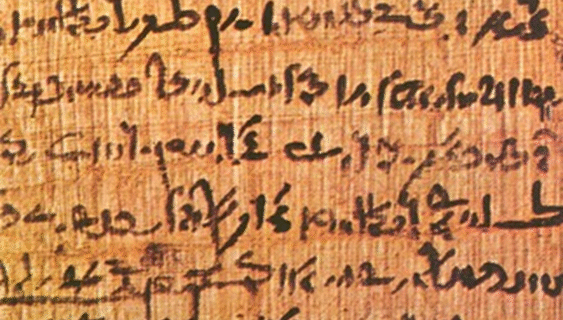As a young lad, one of his most prized possessions was an ax that he was allowed to have. He spent long hours honing that ax to being exceedingly sharp. Then he wanted to try it out. He was not allowed to go into the woods near his house because it was full of bears and panthers and dangerous boars that ran free in those days. So, he needed have a way to try out his new ax. His solution was to go back of the house into the family orchard. He selected a young cherry tree and gloriously chopped it down.
Of course Young Geouge was confronted by his folks about the destroyed cherry tree. It has been confirmed that he never told a lie in his whole life, so he confessed to the deed. It has never been recorded what punishment he received. However, it has become American folk lore that he never told a lie.
It was sparked first in the American colonies by the ambush in 1754 of a French detachment in the Ohio Valley by British militia led by 22-year-old Virginia Colonel George Washington.
It is interesting to me that during the crisis of this war, people turned to Christ all through the colonies. The Great Awakening Revival swept through the American colonies.
Rev. Davies regularly invited hundreds of slaves to his home for a Bible study on Saturday evenings, their only free time, and taught them hymns and how to read. Realizing the importance of education, Davies helped found Princeton University, and was chosen as its president.
In 1755, 1,400 British troops marched over the Appalachian Mountains to seize French Fort Duquesne, near present day Pittsburgh. One of the wagon drivers for the British was 21-year-old Daniel Boone.

General Braddock was mortally wounded. Washington carried Braddock fr
The terrible British losses convinced the Iroquois tribes of Senecas and Cayugas to switch their allegiances to the French.
Before he died, General Braddock gave Washington his battle uniform sash, which Washington reportedly carried with him the rest of his life, even while Commander-in-Chief and President. Washington presided at the burial service for General Braddock, as the chaplain had been wounded. Braddock’s body was buried in the middle of the road so as to prevent it from being found and desecrated by the Indians.
Shortly after the Battle of Monongahela, George Washington wrote from Fort Cumberland to his younger brother, John Augustine Washington, July 18, 1755: “As I have heard, since my arrival at this place, a circumstantial account of my death and dying speech, I take this early opportunity of contradicting the first, and of assuring you, that I have not as yet composed the latter. But by the All-Powerful Dispensations of Providence, I have been protected beyond all human probability or expectation; for I had four bullets through my coat, and two horses shot under me, yet escaped unhurt, although death was leveling my companions on every side of me!”
At one point during her captivity, she overheard a meeting that the Shawnee had with some Frenchmen. They described in detail the British defeat in the Battle of Monongahela at Duquesne, and how the Indian Chief Red Hawk claimed to have shot Washington eleven times, but did not succeed in killing him. After several months, Mary Draper Ingles escaped in mid-winter, as recorded in her biography, and trekked nearly 1,000 miles back home.

I have traveled a long and weary path that I might see the young warrior of the great battle. It was on the day when the white man’s blood mixed with the streams of our forests that I first beheld this Chief. I called to my young men and said, mark yon tall and daring warrior? He is not of the red-coat tribe-he hath an Indian’s wisdom, and his warriors fight as we do—himself alone exposed. Quick, let your aim be certain, and he dies. Our rifles were leveled, rifles which knew not how to miss; `twas all in vain, a power mightier far than we, shielded you.Seeing you were under the special guardianship of the Great Spirit, we immediately ceased to fire at you. I am old and soon shall be gathered to the great council fire of my fathers in the land of shades, but ere I go, there is something bids me speak in the voice of prophecy.”
The Indian Chief continued:
The account of the old Indian warrior chief spread, that: “Washington was never born to be killed by a bullet! I had seventeen fair fires at him with my rifle and after all could not bring him to the ground!”
Washington was especially close to God as a young man.
The qualities of faith, virtue and discipline were evident during this early period of George Washington’s public career, as seen in his actions and correspondence as following recorded:
The young Colonel George Washington wrote from Alexandria, Virginia, to Governor Dinwiddie, February 2, 1756: “I have always, so far as was in my power, endeavored to discourage gambling in camp, and always shall while I have the honor to preside there.”
Colonel Washington wrote from Winchester, Virginia, to Governor Dinwiddie, April 18, 1756: “It gave me infinite concern to find in yours by Governor Innes that any representations should inflame the Assembly against the Virginia regiment, or give cause to suspect the morality and good behaviour of the officers. I have, both by threats and persuasive means, endeavored to discountenance gambling, drinking, swearing, and irregularities of every kind; while I have, on the other hand, practiced every artifice to inspire a laudable emulation in the officers for the service of their country, and to encourage the soldiers in the unerring exercise of their duty.”
Washington issued the following order while at Fort Cumberland in June of 1756: “Colonel Washington has observed that the men of regiment are very profane and reprobate. He takes this opportunity to inform them of his great displeasure at such practices, and assures them, that, if they do not leave them off, they shall be severely punished. The officers are desired, if they hear any man swear, or make use of an oath or execration, to order the offender twenty-five lashes immediately, without a court-martial. For the second offense, he will be more severely punished.”
In 1756, Colonel George Washington issued the order: “Any soldier found drunk shall receive one hundred lashes without benefit of court-martial.”
About a year after General Braddock’s defeat, Colonel Washington wrote to Governor Dinwiddie from Winchester, Virginia: “With this small company of irregulars, with whom order, regularity, circumspection, and vigilance were matters of derision and contempt, we set out, and by the protection of Providence, reached Augusta Court House in seven days without meeting the enemy; otherwise we must have fallen a sacrifice through the indiscretion of these whooping, hallooing, gentlemen soldiers.”
Young Washington wanted a chaplain for any group of soldiers he may command.
On September 23, 1756, Colonel Washington wrote to Governor Dinwiddie from Mount Vernon: “The want of a chaplain, I humbly conceive, reflects dishonor on the regiment, as all other officers are allowed. The gentlemen of the corps are sensible of this, and propose to support one at their private expense. But I think it would have a more graceful appearance were he appointed as others are.”
On November 9, 1756, Colonel Washington wrote to Governor Dinwiddie: “As to a chaplain, if the government will grant a subsistence, we can readily get a person of merit to accept the place, without giving the commissary any trouble on the point.”
On November 24, 1756, Colonel Washington wrote to Governor Dinwiddie: “When I spoke of a chaplain, it was in answer to yours. I had no person in view, though many have offered; and I only said if the country would provide subsistence, we could procure a chaplain, without thinking there was offense in expression.”
On April 17, 1758, after Governor Dinwiddie was recalled, Colonel Washington wrote from Fort Loudoun to the President of the Council: “The last Assembly, in their Supply Bill, provided for a chaplain to our regiment. On this subject I had often without any success applied to Governor Dinwiddie. I now flatter myself, that your honor will be pleased to appoint a sober, serious man for this duty. Common decency, Sir, in a camp calls for the services of a divine, which ought not to be dispensed with, although the world should be so uncharitable as to think us void of religion, and incapable of good instructions.” So, young Washington got his chaplain.
On February 15, 1763, the Fairfax County Court recorded: “George Washington, Esq. took the oath according to Law, repeated and subscribed t
So, after an illustrious career as a young officer in the British Army, the oppressive activities and orders of the British King forced the Colonies to rebel against the British and seek independence. Thirteen years later, the Colonial authorities made Washington the General over their army of resistance and revolution. Following is his first statement to his troops and the new Nation:
General George Washington stated, July 2, 1776: “The time is now near at hand which must probably will determine whether Americans are to have any property they can call their own; whether their houses and farms are to be pillaged and destroyed, and themselves consigned to a state of wretchedness from which no human efforts will deliver them. The fate of unborn millions will now depend, under God, on the courage and conduct of this army. Our cruel and unrelenting enemy leaves us no choice but a brave resistance, or the most abject submission. We have, therefore to resolve to conquer or die.”



